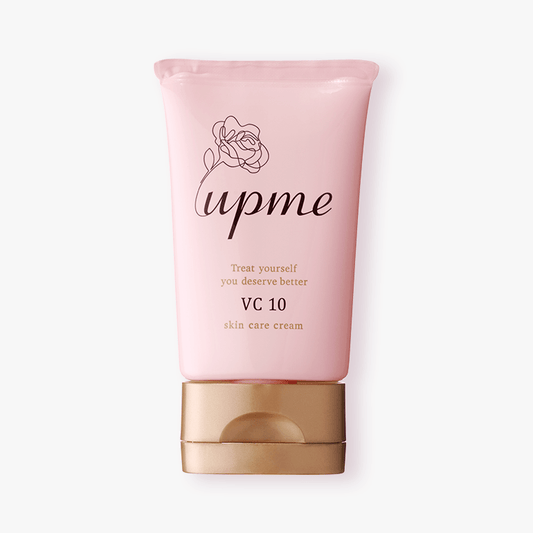
How to easily treat dull skin in your sensitive areas at home
Thank you for visiting our website.
Researched and developed by 95 doctors
Contains 10% of our proprietary stable neutral vitamin C derivative
Carefully crafted Femcare brand cream
I'm Sato, a staff member at "up me".

The theme of this article is "How to easily care for dull skin in your delicate areas at home."
Many women are troubled by dullness in their delicate areas.
Many women in their 30s and 40s become distracted by the obvious dullness around their bikini lines and inner thighs, which can lead to a loss of confidence.
However, if you follow the right care methods, you can effectively address these dark spots.
In this article, we will explain how to easily care for dark spots in your sensitive areas at home .
About dullness in the delicate zone
First, it is important to understand what causes dullness in the delicate areas.
Generally, the main causes of dullness include skin friction, self-removal of unwanted hair, hormonal imbalance, and dry skin.
In addition, as we age, the skin's ability to regenerate weakens and it becomes less effective at eliminating melanin pigments, which can cause dullness to gradually become more noticeable.
Care with the power of Vitamin C
Vitamin C is a powerful ingredient for brightening skin.
It is very effective against dullness because it suppresses melanin production and promotes skin regeneration.
In addition, by using creams or cosmetics containing vitamin C derivatives, vitamin C can be efficiently absorbed into the skin.

How to choose and use the right cream
To treat dullness in delicate areas, it is recommended to use a special cream.
When choosing, make sure that it contains vitamin C derivatives and moisturizing ingredients.
Also, since it will be used on sensitive areas, it is important to choose products that are additive-free and hypoallergenic.
When using, apply an appropriate amount to clean skin and gently massage into skin.
Be careful not to use too much pressure or damage your skin.
Causes and prevention of dullness
Dullness can be caused by dry skin and poor blood circulation.
These are factors that impair the skin's transparency and give it a dull appearance.
That's why daily moisturizing care is essential.
To moisturize, it is important not only to use creams, but also to properly use lotions and oils for body care after bathing.
In addition, moderate exercise and massage are also effective in promoting blood circulation. Improving blood circulation around the delicate zone will lead to improvement of dullness.
Advice for women in their 30s and 40s
Women in their 30s and 40s are prone to skin problems due to aging.
However, with proper skin care, these problems can be easily addressed.
If you are particularly concerned about dullness in your sensitive areas, make it a rule to regularly use a cream containing a vitamin C derivative to maintain healthy skin.

Preventing dullness caused by hair removal and aftercare
Recently, more and more women are choosing hair removal to remove unwanted hair from sensitive areas.
Hair removal helps prevent dullness by reducing damage to the skin caused by self-treatment, which is a major cause of dullness.
Aftercare after hair removal is also important.
To care for skin damage caused by radiation and treatment, actively use products containing vitamin C derivatives and moisturizing ingredients to support skin regeneration.
summary
To treat dull skin in sensitive areas, it is important to use appropriate skin care products, such as creams containing vitamin C and moisturizing ingredients, and to use them correctly.
By keeping these things in mind, women in their 30s and 40s can also regain bright, healthy skin.
Also, when undergoing hair removal, be sure to pay close attention to aftercare and take good care of your skin.

We want you to enjoy every day with confidence, without worrying about dullness.
To that end, try the care methods introduced in this article to protect the health of your delicate areas.

